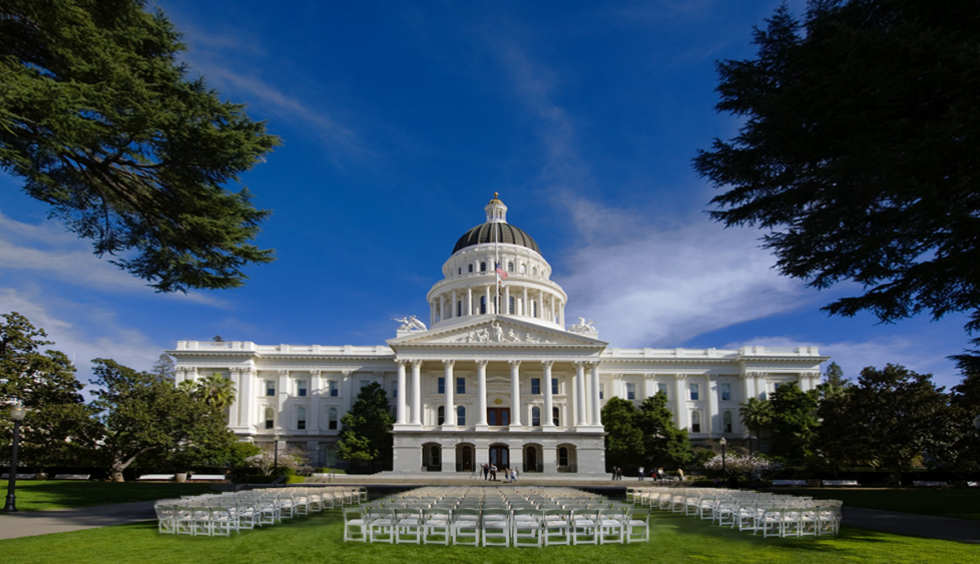
The California State Legislature has passed two bills that aim to reduce energy prices in the state, which have been heralded as “common sense” solutions to energy affordability by the Solar Energy Industries Association (SEIA).
The two bills are Assembly Bill 825 (AB 825) and Senate Bill 302 (SB 302), which cover regional electricity and taxes, respectively. California law included a number of conditions that must be met before the beginning of 2019, including approval of bodies such as the Public Utilities Commission (PUC), to establish “an independent regional organisation” to work with the independent system operator (ISO) in managing the state’s energy grid.
Try Premium for just $1
- Full premium access for the first month at only $1
- Converts to an annual rate after 30 days unless cancelled
- Cancel anytime during the trial period
Premium Benefits
- Expert industry analysis and interviews
- Digital access to PV Tech Power journal
- Exclusive event discounts
Or get the full Premium subscription right away
Or continue reading this article for free
AB 825 removes those conditions, opening up the possibility of a more regionalised energy market coming into force in California, and one that can adjust bills to suit consumers on a local level. The bill authorises the ISO, from the beginning of 2028, to implement tariff modifications, accepted by the Federal Energy Regulatory Commission (FERC) and adopted by independent regional organisations, based on regional differences in energy mixes.
“AB 825 will spur solar development by paving the way for a regional transmission organisation across the Western states—and ultimately help lower electricity bills for Californians,” said Stephanie Doyle, California state director at SEIA. “The regionalisation plan means California’s solar and storage resources will have a broader market, which will lead to more efficient energy production and distribution, and a more reliable grid.”
This sentiment was echoed by the Clean Energy Buyers’ Association (CEBA), which supported the passage of AB 825 as a more regionalised energy plan could help facilitate the trading of energy between California and its neighbouring states, where their solar sectors are less mature.
“AB 825 represents California’s commitment to a broader, coordinated energy market that will serve as a model for inter-state regional coordination to deliver cost effective, reliable carbon emissions-free electricity as we experience unprecedented load growth in the west and nationally,” said Nidhi Thakar, senior vice president of the CEBA.
Realising the value of tax incentives
SB 302, meanwhile, provides a tax exemption for organisations that take advantage of Sections 6417 and 6418 of the Internal Revenue Code (IRC), which were introduced by the 2022 Inflation Reduction Act (IRA). These sections cover the direct payment and transfer of clean energy tax credits, and the latest bill notes that money transferred as part of these deals will not count towards a company’s “gross income” when determining the tax it is required to pay.
“SB 302 will keep energy project costs down by allowing California energy developers to realise the full value of federal tax incentives,” explained Doyle.
In effect, this exemption means that companies that engage in renewable energy tax credit transfers will see their tax burdens reduced, and provides clarity for a policy question that has loomed since the passage of the IRA, and has been unanswered on a federal level.
Last week, Sean Garren, chief programs officer at advocacy group Vote Solar, told PV Tech Premium that state governments may have to take on more responsibility for protecting clean energy initiatives in legal matters, if the federal government is not taking steps to facilitate the energy transition, and California has moved in this direction.
The news follows California governor Gavin Newsom signing an executive order to accelerate projects at risk of losing IRA support, in effect a directive to commission and construct more clean energy projects before federal tax credits are lost under the Trump administration’s shortened timelines.
PV Tech publisher Solar Media will host the 12th edition of the Solar & Storage Finance USA event on 21-22 October 2025 in New York. Panellists will discuss the fate of US solar and storage in a post-subsidy world, the evolving economics of standalone BESS and de-risking solar and storage supply chains. Book your tickets for the event on the official website.






